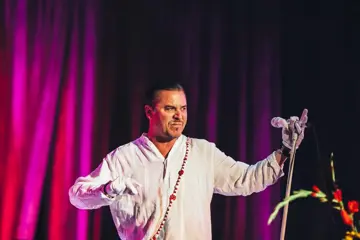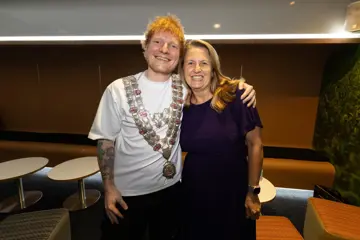The world today is more image-saturated and technology-based than ever before - navigating the allusive film, radio and television industries seems daunting to anyone standing on the edge of the pond. But the Australian Film Television & Radio School, dubbed AFTRS, is navigating these uncharted waters with its students.
"I think it's because the technology has finally arrived and all of the tech is available now at consumer price points, and it's almost like technology looking for content and that's how we're regarding it," says Martin Brown - Director of Award Courses. We're discussing VR and what it means for the future of film and television schools. "We did a research project late last year in virtual reality, making sure we're completely skilled up in terms of where that's going. That's going to be a huge part of where our graduates will be working in the future," he predicts.
"It was refreshing to know that we were being assessed on our individual ability to create stories and analyse film rather than on a statewide rank."
"Like the industry now, which has many layers in it, our curriculum needs to reflect that. We used to be known, not that long ago really, as producing peak practitioners who could operate in a feature film environment, in all of the disciplines that are required in feature film world. But now… there's an enormous amount of content being produced in all industries - one of our previous lecturers, I saw him at a social event, and he's now a filmmaker for an insurance company!"
While applying for a coveted position may seem daunting, Brown is quick to explain that they're making sure prospective students at any level get a look-in. "I think raw talent never goes astray... In our application process we have the door as wide open as it can possibly be so that we're looking in all the right places for people that have that raw talent coming in," he says. Students like Ollie Ritchie, 19, who is studying a Bachelor of Art (Screen) at AFTRS, may not have had industry experience straight out of school, but he had a clear direction and had been actively creating - something Brown looks for when sorting through applicants. "I began making films in late 2009 but it was just a hobby I had," Ritchie says. "It wasn't really until an art assignment in year 10 that I made a short film for the first time in a few years and fell back in love with the medium... The [application] process was really cool, actually. It was refreshing to know that we were being assessed on our individual ability to create stories and analyse film rather than on a statewide rank."
Don't miss a beat with our FREE daily newsletter
But raw talent isn't everything in this industry. "Part of what we're doing to try to get students to operate in [a professional] space is that we have a very vigorous internship program where they go out and they make a network of connections," Brown explains. "Knowing people will get you places, but talent will keep you there. How incredibly pretentious was that?!" Ritchie laughs. "Obviously I'm still a student, but I do know that… knowing people who can give you a job is just as important as being able to do that job."















